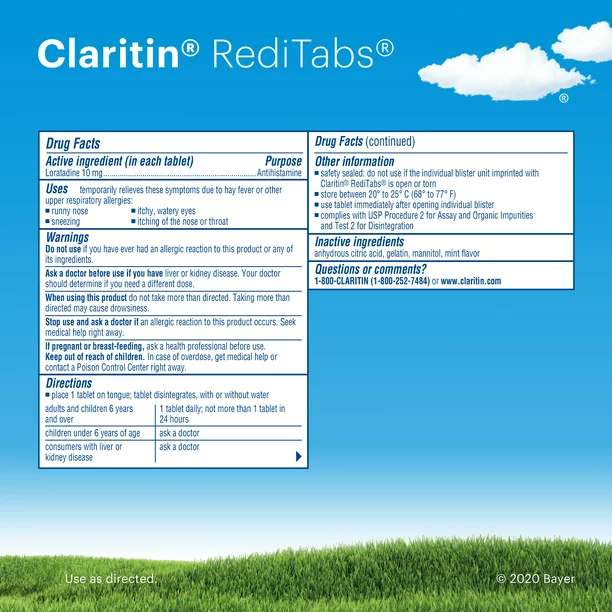Did you know that Medications Helps Cause Sunburn? Thought I understood this, but, as I made it through the summer with no sunburn, I wondered.

Don’t try to figure out which one is my family, we weren’t there this summer.
Our summer has made me wonder about this medication thing and my past sunburns. Have you reached any conclusions about yourself and sunburning? Do you think medications make a difference?
Since I wasn’t exposed so much, I didn’t sunburn this summer. I used very little sunscreen other than the daily amount on my face. This summer I wore a hat with a wider brim, sunglasses, and a long sleeve loosely-fitting shirt with a collar.
I also observed the safe hours of before 10 AM and after 4 PM for being out. Rarely was I outside in the morning after 9, so I didn’t wear the shirt all the time. I just wore my normal tee shirt with short sleeves.
There are no tan lines on my arms something I always had at the end of summer. So I am slowly realizing that old dogs can learn new tricks.
It would be good to figure out more about this medication thing with the sun to insure no more sunburn for myself.
Why Do We Care If Our Skin Becomes Sensitive?
We care because this sensitive condition can make our skin react differently. You may have been able to stay out safely with sunscreen when you go out in the sun after taking your medication. This time may be the time you get a really deep sunburn.
Sunburn opens the door to skin cancer. Deep sunburn opens the door and clears a path for skin problems, maybe even skin cancer.
The different reactions are triggered by different things:
- The season of the year.
- Early or late in the day?
- Are you taking medications?
- Make sure to hydrate throughout the day.
- Being physically active while in the sun?
- First sun exposure this year?
- Have a food allergy?
- Changed sunscreens?
- Trying a new fragrance?
- Were you cleaning with disinfectants or did you spray them on the surfaces where you and your family were staking out your picnic table?
- Did you not sleep well last night?
- No alcohol while in the sun, it will dehyderate your skin.
So many things cause your body to stress a little and react when it would not normally. Nailing down exacts is difficult until you experience issues. Be patient and protect your skin from the sun.
Yes, it is hard to nail down until you have enough experience to know what is happening and how to protect your skin. You may even react to sunscreens all of a sudden.
When you become aware that your skin is becoming redder than normal, this is the time to reach for your sun blocking clothing.
Now is the time for your sun hat, sunglasses, and long sleeve loose-fitting shirt of a tightly woven fabric to go on your body.
Skin cancer seems to play roulette with your skin and the problems it can cause. Protection is better than healing because you were not careful.

Are Daily Medications Making Skin Extra Sensitive To The Sun?
While learning about sun blocking clothing, I learned that Australia is working hard to protect its citizens from the sun. They have been on the leading edge to rate UPF clothing. This gives those who are protecting their skin from the sun can have some idea of the protection they are getting.
The University Of Sydney had this information about skin and precautions we should take:
“Some medicines can increase your risk of sunburn because they either enhance UV absorption in your skin or cause you to have a light-activated reaction.
It’s important not to skim over the information provided with your medication, to speak to your pharmacist for on-the-spot advice, and to take extra precautions if required.“
The 2 Ways Skin Most Often Reacts To Meds And Sun Exposure
The information is available by The University Of Sidney and written by Professor Nial Wheate, Dr. Lisa Kouladjian O’Donnell, and Elise Schubert.
“There are two main ways that medications can increase your risk of sunburn; a phototoxic reaction and a photoallergic reaction.”
A phototoxic reaction is the most common way for a medication to cause an increase in sun sensitivity. The reactions occur if the drug molecule is able to absorb UV light and then release it back into the skin.
Once the oral medication becomes absorbed into the bloodstream, or after you apply the topical medication to the skin, a phototoxic reaction can occur anytime within minutes or hours of sun exposure. Typically, only the skin that you expose to the sun will react.”
Now let’s look at the 2nd more common reaction:
“The second, less common mechanism, is via a photoallergic reaction. This can occur when you apply certain medications directly to the skin, or take them by mouth and then circulated them to the skin.
After exposure to the sun, a drug can undergo structural changes. Once these structural changes happen, small proteins in our body can bind to the drug, resulting in our immune system recognizing it as a foreign substance. Then antibodies are produced to fight it.”
How The Reaction Presents Its Self
The article also explained how the reaction looks and acts:
“The reaction in many cases resembles eczema or a red rash.”
“This reaction can take anywhere between one to three days to occur. The reaction will only occur on the parts of the body that you expose to the sun.”
“Both phototoxic and photoallergic reactions are damage to the skin. Damage from UV exposure that can increase the risk of later developing skin cancer.”
“There are also some types of medicines that can cause heat sensitivity and increase your risk of dehydration. This can occur if medicine has effects that increase urination, prevent sweating, or reduce blood flow to the skin. Examples of these medications include diuretics, some types of antihistamines, and stimulant medications for ADHD.”
Now Let’s Look At What The FDA Has To Say On Medication and Sun Reactions
“Some medicines contain ingredients that may cause photosensitivity, a chemically induced change in the skin. Photosensitivity makes a person sensitive to sunlight and can cause sunburn-like symptoms, a rash, or other unwanted side effects. It can be triggered by products applied to the skin or medicines taken by mouth or injected.”
“Photoallergy is an allergic reaction of the skin and may not occur until several days after sun exposure. Phototoxicity, which is more common, is an irritation of the skin and can occur within a few hours of sun exposure.”
“Both types of photosensitivity occur after exposure to ultraviolet light, either natural sunlight or artificial light, such as a tanning booth.”
The University Of Sidney And the United States Food And Drug Administration Agree That Meds and Sun Don’t Always Mix
Both institutions have the same results. They may word it a bit differently, but medications and sun exposure are not always a good thing.
Unfortunately, we do tend to scan the information in the bag with a prescription, or even the information on a bottle of Tylenol, if we read them at all.
Knowing that I am guilty of not reading the warnings and directions beyond the dosage, I decided to check out the Claritin that I have been taking for a while for allergies.

I can see that in addition to my medium fair skin, the sensitivity is increased on the days I am taking this medication for allergies.
This also proves again, that we have to be responsible for our own health. Out of the many things that make us healthy is how we protect ourselves. If you are in the middle of an allergy flair, it might not be a good time for you to be outside in the sun.
What about your children? Are they having problems with their allergies and have started medication? They are already susceptible because they are young and have skin that is still developing. Medication can cause them to overreact and sunburn so quickly. Be aware.
List Of Medications That Are Known To Cause Sensitivity To The Sun
FDA shares the following list of medicines that can cause sensitivity to the sun. (FYI – This list includes the medications that are sold the most, there are others. Read labels and directions on the ones you take)
- Alpha-hydroxy acids in cosmetics
- Antibiotics (ciprofloxacin, doxycycline, levofloxacin, ofloxacin, tetracycline, trimethoprim)
- Antifungals (flucytosine, griseofulvin, voriconazole)
- Antihistamines (cetirizine, diphenhydramine, loratadine, promethazine, cyproheptadine)
- Cholesterol-lowering drugs (simvastatin, atorvastatin, lovastatin, pravastatin)
- Diuretics (thiazide diuretics: hydrochlorothiazide, chlorthalidone, chlorothiazide.; other diuretics: furosemide and triamterene)
- Non-steroidal anti-inflammatory drugs (ibuprofen, naproxen, celecoxib, piroxicam, ketoprofen)
- Oral contraceptives and estrogens
- Phenothiazines (tranquilizers, anti-emetics: examples, chlorpromazine, fluphenazine, promethazine, thioridazine, prochlorperazine)
- Psoralens (methoxsalen, trioxsalen)
- Retinoids (acitretin, isotretinoin)
- Sulfonamides (acetazolamide, sulfadiazine, sulfamethizole, sulfamethoxazole, sulfapyridine, sulfasalazine, sulfisoxazole)
- Sulfonylureas for type 2 diabetes (glipizide, glyburide)
The FDA also tells us that not everyone who takes the medicines will have a reaction that will cause their skin to be extra sensitive.
They also say that just because you had a reaction one time, it does not mean you will every time you take or use the medication. Even if you get out in the sun. So many little things affect the overall picture or reaction.
So you must stay aware. Keep your skin covered when you are out if you have taken one of the medications that are known to cause problems. Your sun hat, sunglasses, and sun blocking shirt are important here. Don’t be careless.
How Do You Tell If You’re Getting A Sunburn?
If you have ignored your sunburns in the past until your skin is already bright red, you have skin damage. It may not be a problem yet, but you must become aware of sun damage to your skin and be protective of your skin.
Your skin has had all the sun it can safely handle in the minutes before it turns pink.
If you are one who turns pink after the burn while you are on the way to red and serious sunburn, you will surely need to become aware.
If you get too busy having fun in the sun, to stay aware of when your skin starts signaling for relief, cover up to start with. What about your children, they should also start the fun in the sun with sun blocking clothing.
Children under 1-year-old should not have a day in the sun. They need protection from the direct sun all day. Their skin isn’t mature yet.
Sunburn symptoms include:
- Slight changes in skin color, like a blush – cover your skin, maybe you have caught it before actual sunburn.
- More change in skin color to a pink – cover your skin and get out of the sun. You have a light sunburn and need to stop further damage to your skin.
- A great deal of change in skin color to – red and even purple. You will have more sunburn symptoms and need to cool down. Stay in where there is an air conditioner to cool your outer and inner core temperatures.
- If your skin feels hot to the touch, you will need to start cooling to get your body temperature down, the red just hasn’t shown up yet, but probably will.
- When you have pain and /or itching, cooling and getting out of the sun are important. This is your skin letting you know it is sunburned. If you are very uncomfortable with fever, see a physician.
- Are you experiencing swelling? Sunburn for sure and cooling is important as is getting out of the sun.
- When there are fluid-filled blisters that may itch and eventually pop or break, you should already be out of the sun, cooled down. The skin will be dry and scratchy. Aloe Vera pure lotions can help in a small area. If a large area, you will need to see a physician for further assessment.
- The broken blisters that peel to reveal even more tender skin beneath come in a few days as you begin to heal.
Your skin will probably change color within 2 to 6 hours of exposure. Color change will continue for up to 3 days.
You can easily be getting too much sun in minutes. It is hard to visually see the damage in the first minutes. Covering up and wearing sunscreen allows you some safe time in the sun.
How To Stay Safe From The Direct Sun
We all want some time in the sun for fun. However, we are learning that too much sun sets us up for real problems. Skin cancer is a real and constant danger of too much time in the sun.
So, you can help yourself with a sun blocking hat, sunglasses, and a sun booking shirt. If you don’t have a UPF shirt, choose a tightly woven very loosely-fitting one with long sleeves and a collar. This insures your neck and torso can stay covered.
If possible, provide shade with portable pop-up tents, shades, and umbrellas. Keep the direct sun off you and your family. Maybe a few hours at the park where there are shade trees is better than the beach.
Avoid the hours from 10 AM until 4 PM when the sun is so direct.
Keep yourself and your family hydrated. Heads covered with at least 3-inch brim hats. Clothing is the best protection with sunscreen added where you aren’t covered. Your face, hands, you can do this.
You can keep your skin healthy.

Sami’s Take on Your Medications Causing Sunburn
The facts make it hard to argue that medications do affect your reaction to the sun. Before we had so much information available, when my kids were young, my son had a reaction to the sun. He had measle-looking hives on his face and body.
He had on a very thin shirt that allowed the sun through. Young mothers who don’t know that this is dangerous for babies to be in the sun, set their families up for skin cancer as adults. Now, he has his dermatologist on speed dial.
We all have different stories of how we got to where we are in the relationship between sun, skin, and skin cancer. Even if you are able to void skin cancer, what about looking older than we are?
There are many reasons to approach having fun in the sun with caution.
With awareness of when you are spending time in the sun, and what you can do to protect your skin, you will soon learn your skin’s response to the sun and know when it is time to cover up or go in.
Don’t set yourself up for a lifetime of skin cancer. Don’t let anyone tell you that skin cancer isn’t dangerous. It can be deadly if not treated. It is serious, and worth avoiding.
What is your plan to take better care of your skin?
More information can be found at the links below. Can you ever know too much about protecting yourself from the sun?
www.fda.gov/drugs/special-features/sun-and-your-medicine
http://www.betterhealth.vic.gov.au/health/conditionsandtreatments/sunburn